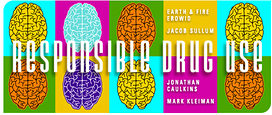Mark, I am curious about the basis for your assertion that doubling alcohol taxes “would reduce the rates of homicide and motor-vehicle fatalities by several percent.” I agree that the tax rate per ounce of pure ethanol should be the same for different alcoholic beverages, but in my view the appropriate rate is zero. I oppose special taxes on alcohol because they punish the majority for the sins of a minority.
In principle, I do not object to the idea of demanding that people convicted of driving while intoxicated stop drinking for a specified period of time as part of their sentence. It does seem analogous to demanding that they stop driving, and (unlike in the case of alcohol taxes) the burden is imposed on individuals who have actually harmed others (or at least endangered them).
But if enforcing such restrictions entails issuing everyone a revocable “drinker’s license,” this narrowly focused solution becomes a broad burden on drinkers generally. It transforms a right into a privilege, inviting activists, public health officials, judges, and legislators to invent new reasons for telling people they may no longer drink. These may include excessive consumption that hurts only the drinker himself or even misdeeds with no connection to alcohol at all, just as driver’s licenses can be suspended for offenses (marijuana possession, for example) that have nothing to do with driving. Instead of requiring all drinkers to obtain, maintain, and present licenses that allow them to consume alcoholic beverages, why not require people convicted of drunken driving to demonstrate their sobriety through ignition interlocks and/or random, unannounced testing?
I notice that both Mark and Jonathan Caulkins want to limit this discussion (and drug policy debate generally?) to reforms they consider politically feasible. I’m happy to discuss modest changes that can realistically be achieved in the short term, and I welcome the contributions that both Mark and Jonathan have made to reducing the harm caused by the war on drugs. But I reject the idea that more dramatic changes, such as the full-scale decriminalization of marijuana or the wholesale repeal of drug prohibition, should always be off the table because they’re not going to happen anytime soon. Clearly, such changes do happen: Drugs that once were legal are now prohibited, and vice versa. Talking about big changes in the law is part of the process of making them happen. Those of us who see drug prohibition as a great injustice are in this for the long haul; we realize that it took many years to reverse other egregiously wrong policies that were once considered beyond debate by serious people.

